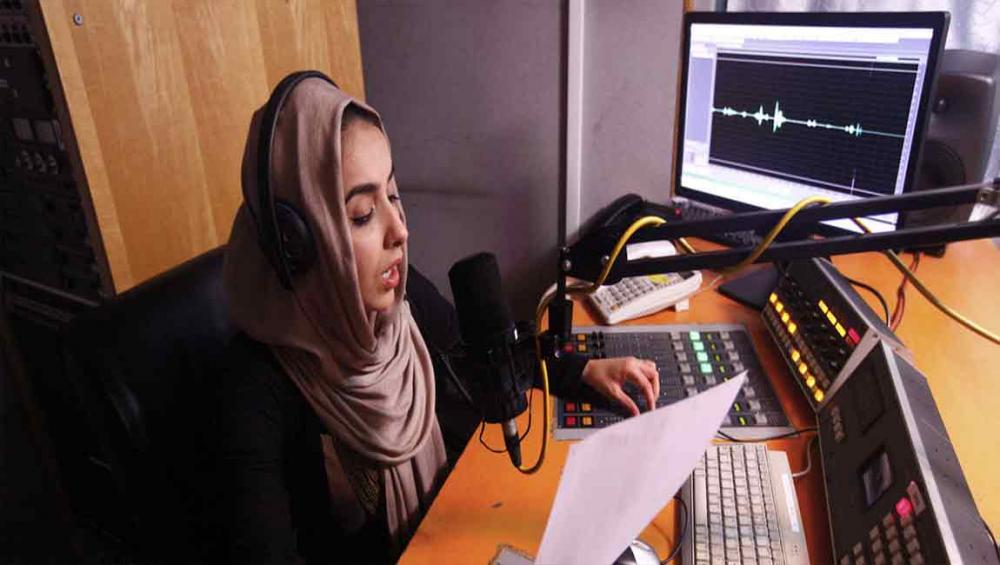Just Earth News | @JustEarthNews | 03 May 2018

UNAMA/Fardin Waezi
New York: The dangers of working as a journalist in Afghanistan have been dramatically underlined by an attack in the capital Kabul on Monday in which nine Afghan photographers and reporters were killed. They had gone to report on a suicide attack, and were targeted by a second suicide bomber when they arrived on the scene.
The cold-blooded murder took place just days before World Press Freedom Day marked annually on May 3rd.
Outside the Afghan capital, the dangers of reporting the news, particularly as a woman, have never been so apparent.
Sediqa Sherzai is the news director of Radio-TV Roshani, a media organization In Kunduz in the north of Afghanistan. Her female reporters are under constant threat not only from insurgents but also from men who do not want women to work in the media.
“When insurgents seized Kunduz in 2015, they came immediately for our station because they didn’t like our content focused on women’s rights,” she said. “Even though most of our reporters fled in advance of their arrival. They looted our equipment and destroyed what they could not take.”
Elections
Despite the challenges of working as a woman in the media in a conservative and conflict-affected country, Sediqa Sherzai is committed to ensuring that the voices of Afghan women area heard ahead of the country’s elections slated for October this year.
In the volatile province of Kunduz where some territory is beyond government control, women say they fear to speak to the media and talk about human rights, much less advocate openly for democracy and change. Even Sediqa Sherzai and her staff of women shy away from photographs, cautiously protecting their identities.
Elections are considered essential to solidify fragile the social and human rights advances made during the last 17 years. The struggle for full women’s suffrage in Afghanistan, reminiscent of similar fights in centuries past in other nations, has gained broader international support in the last two decades.
UN in Afghanistan
Pushing for change, the United Nations Assistance Mission in Afghanistan (UNAMA) has supported initiatives that offer space for Afghan women from across all sectors of society to advocate against oppression and conflict, and also to stand up for basic human rights, including their right to vote.
UNAMA’s chief, Tadamichi Yamamoto, said on the occasion of World Press Freedom Day that the UN continues to push for the government “to implement measures to improve journalist safety and foster an open media where no voice is silenced through fear.”
As news director in a city besieged by war, she faces the dilemma of trying to dispatch reporters to the field. “We can’t say we are accurately reflecting the views of women when even our own female reporters are under constant threat,” she said.Ms Sherzai said the unwritten code to silence women runs deep in Kunduz. “Women don’t want to talk because they are under threat, but also because of traditional restrictions, including fathers and husbands forbidding them from talking.”
Democracy
Even if Kunduz, a bustling city of some 500,000 citizens, was not enduring near-constant conflict, there would still be immense obstacles standing in the way of women’s full participation in democracy, according to media officials and human rights advocates.
“This is a pervasive issue across our society as even highly literate men in business and in government don’t want their women to vote,” said Lida Sherzad, an advocate working with the Afghanistan Women’s Network (AWN). “There is an immense price to pay in terms of psychological damage and pressure on women, including their children, and these mothers are asking me why they should even participate in elections if no one is protecting them.”
The right for women to vote goes hand in hand with several of AWN’s efforts to create new social networks and connect different groups of women in a common effort to speak out for women’s leadership and to end violence against women.
Women’s rights advocates say that while progress has been slow at times, the last 17 years have witnessed immense gains for Afghan women, who under Taliban rule in late 1990s and through most of 2001 were confined to their homes and prevented from obtaining an education.
Many women working in the media in Kunduz left during the Taliban rule, but Sediqa Sherzai said that stand’ if the insurgents re-enter the city for a third time in five years, she will “defend the station if necessary.”